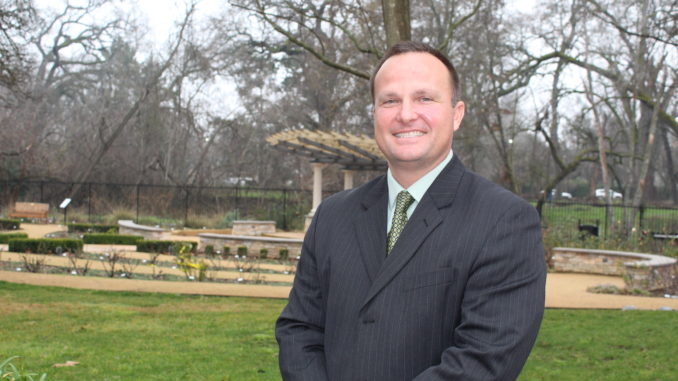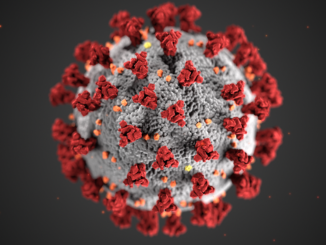
Members of Chico’s City Council sounded alarms about an oncoming recession Tuesday evening (April 7), hitting the brakes on several initiatives and questioning whether to pause or reduce the sales tax measure slated for November’s general election.
The panel met in the City Council chambers—once again devoid of members of the public due to ongoing social distancing efforts—where the majority of the evening’s topics were related to the COVID-19 pandemic.
Discussions on those subjects were triggered when City Manager Mark Orme asked the panel to approve a mid-year budget appropriation of $1.2 million to fund a handful of items that he considered essential. On the list was $450,000 for a COVID-19 contingency, funding to be set aside to address its affects at the city level.
The money, Orme noted, would come from unanticipated revenues that had exceeded the city’s budget projections. But that didn’t mollify the council’s concerns about the coffers in the wake of the economic disruption inherent in the pandemic.
Councilman Sean Morgan was the first to question the fallout of cutting bait on the items.
“Small businesses and the people that pay for all of these things are hoarding all manner of things, especially money,” he said. “So it seems to me this is not the right time to spend anything that we can avoid spending, if we can.”
Orme’s list also included $350,000 in start-up costs for local power purchasing (aka the community choice aggregation), partial relocation costs for the BMX facility from land the city is selling to the Jesus Center ($100,000), remodeling and alert-system upgrades at Fire Station 1 ($250,000), and redistricting costs ($60,000).
Councilman Ory said he appreciated Orme’s breakdown of the importance of each item, but he thought back to the Great Recession and the layoffs that followed. Urging caution amid the COVID-19 crisis, he also said that the city’s reserve fund is $5 million short of what had been targeted.
“I don’t want us to be kidding ourselves. I think we are in a recession, and we’re only going to learn month by month … how deep the hole is going to be,” he said.
Ory recommended the city institute a hiring freeze, including for “crucial employees” such as the airport manager, and that all nonbudgeted funds go to reserves that could sustain employees in the future. He also said the city should consider asking voters for a smaller sales tax increase that would be geared toward recovery. The city’s current plan is to ask taxpayers for a 1 percent increase.
After Ory made a motion to table discussion on the items till budget discussions in June, Morgan seconded the motion and added further comments related to the economic upheaval.
“There’s no doubt we’re in a temporary recession,” he said. “Is it a big recession or is it economic Armageddon? I hope it’s not economic Armageddon, but nobody knows because we’ve never been here before.”
After City Attorney Andrew Jared noted that the city had an obligation to pay the redistricting fees—for demographer services and legal work—Councilman Randall Stone made a substitute motion that excepted those payments, drawing a second from Ory. The panel voted unanimously to pass the motion.
Later in the meeting, Orme gave an overview of the city’s four strategic initiatives related to COVID-19: continuity of essential city services, mitigating impacts to businesses and jobs, management of public spaces, and protecting vulnerable populations.
Among internal changes, the city has allowed staff to work from home with modified work schedules and quarantined those who’ve shown symptoms of illness, Orme said. He noted that Assistant City Manager Chris Constantin has been tapped as the liaison for local businesses struggling in the pandemic. Meanwhile, the city has waived parking meter fees to help commercial operations as they shift their models, such as moving to curbside pickup.
Thus far, the city has allowed public spaces—including restrooms—to remain open. That could change, Orme noted, if people begin clustering in those areas.
“Health and safety of the citizens is what we’re doing all these measures for—ultimately the outcome of which is lowering the speed of the COVID-19 spread … while meeting the vital needs of the community,” he said.
In terms of vulnerable citizens, the city has worked with public safety departments and senior facilities to ensure that elder populations are protected. In addition, Orme relayed the efforts to protect local homeless individuals, a population he acknowledged the city has struggled to support in a comprehensive way. He noted the recent temporary hiring of Joy Amaro, executive director of the Torres Community Shelter, as the city’s homeless solutions coordinator.
Amaro, who relinquished her post with Torres and its True North Housing Alliance, described a multiprong, multiagency effort to protect at-risk homeless individuals and thus the greater community from the spread of the virus. It includes using state and federal monies locally to place people proactively and reactively—based on various criteria, including pending COVID-19 testing—into local hotels with on-site case managers. Known as Project Roomkey, the $150 million initiative announced April 3 by Gov. Gavin Newsom is one part of the state’s plan to “flatten the curve.” Butte County received approximately $473,000 of the funding.
She noted that the Centers for Disease Control and Prevention is recommending that local governments do not conduct sweeps of homeless encampments. Amaro also said she was exploring options to establish a car and tent-camping facility, as the council instructed during its last meeting.
Amaro acknowledged that homeless services is a hot-button issue. She said she can work with those on both sides of the issue.
“I know we can’t make everyone happy, but I think that doing our due diligence and creating a well thought-out, comprehensive plan, we can actually move forward and make a difference in our community,” she said.
Citing confusion surrounding the Chico Police Department’s approach to monitoring homeless encampments in parks, greenways and waterways—groups Chief Mike O’Brien said are largely left alone—Vice Mayor Alex Brown asked the panel to vote to direct CPD not to disband them.
The police chief noted that officers haven’t written a camping citation in eight months and counseled against such a directive. O’Brien said it would inhibit the department’s responses in cases where camps grow to unsafe levels, which he defined as more than nine people but acknowledged could be fewer as the pandemic grows. As of Wednesday (April 8), 13 people in Butte County had tested positive for COVID-19.
Since the item was not on the agenda, the council was required to vote on whether the matter constituted an emergency and then vote on its substance. The panel voted 4-3—with Morgan, Mayor Ann Schwab and Councilwoman Kasey Reynolds dissenting—to discuss the emergency item and support encampment amnesty.




Ah, the irony. The City of Chico stole my vehicles and work tools for the state’s not sending my paid license plate tags. They thereby rendered me unable to work and made me homeless. Now they’re pretending to care about the homeless.
What they care about is their fat paychecks and maintaining a facade that they care about their constituents – nothing more.